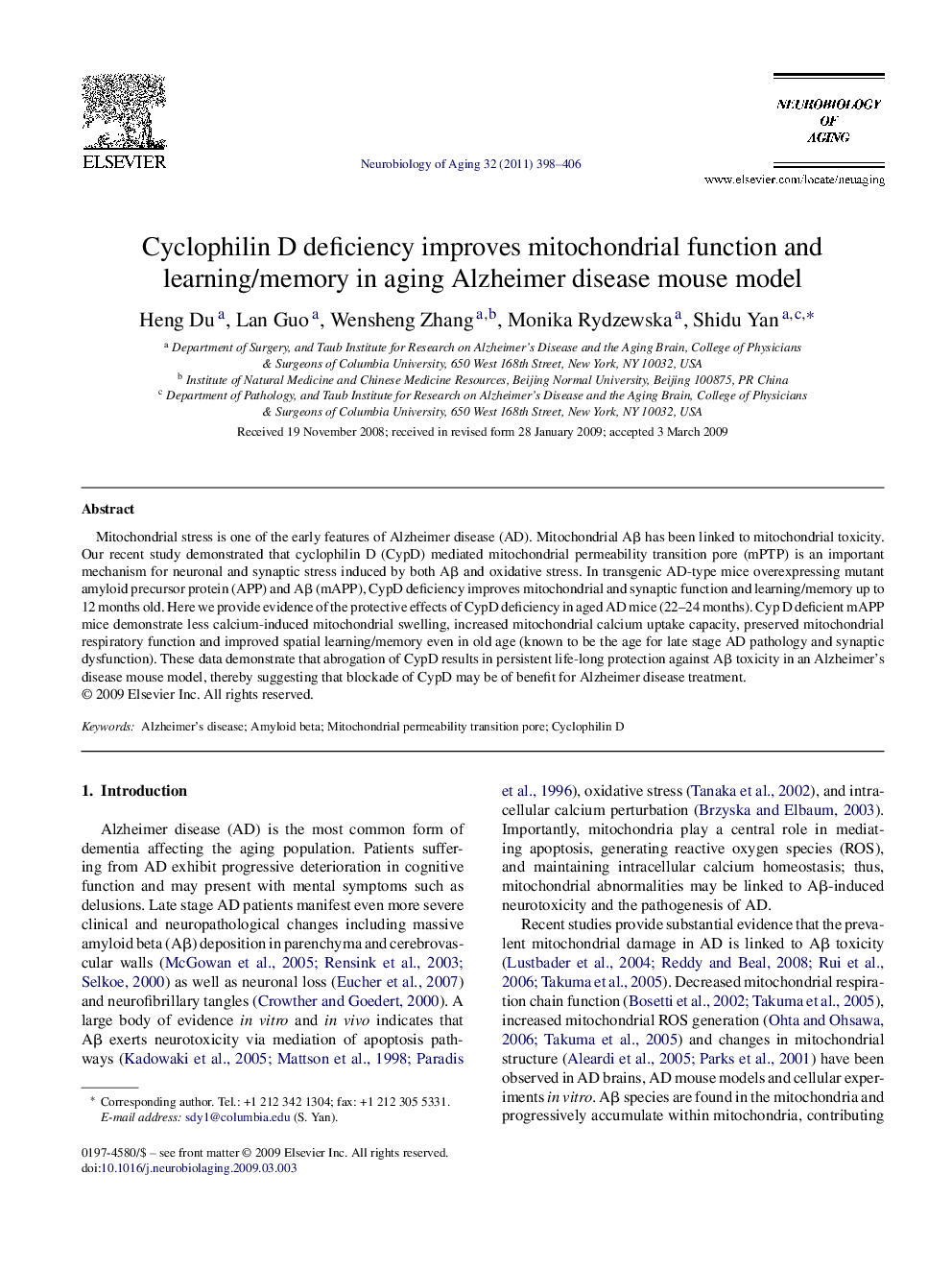| Article ID | Journal | Published Year | Pages | File Type |
|---|---|---|---|---|
| 329242 | Neurobiology of Aging | 2011 | 9 Pages |
Mitochondrial stress is one of the early features of Alzheimer disease (AD). Mitochondrial Aβ has been linked to mitochondrial toxicity. Our recent study demonstrated that cyclophilin D (CypD) mediated mitochondrial permeability transition pore (mPTP) is an important mechanism for neuronal and synaptic stress induced by both Aβ and oxidative stress. In transgenic AD-type mice overexpressing mutant amyloid precursor protein (APP) and Aβ (mAPP), CypD deficiency improves mitochondrial and synaptic function and learning/memory up to 12 months old. Here we provide evidence of the protective effects of CypD deficiency in aged AD mice (22–24 months). Cyp D deficient mAPP mice demonstrate less calcium-induced mitochondrial swelling, increased mitochondrial calcium uptake capacity, preserved mitochondrial respiratory function and improved spatial learning/memory even in old age (known to be the age for late stage AD pathology and synaptic dysfunction). These data demonstrate that abrogation of CypD results in persistent life-long protection against Aβ toxicity in an Alzheimer's disease mouse model, thereby suggesting that blockade of CypD may be of benefit for Alzheimer disease treatment.
